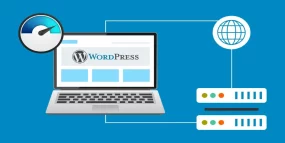
In today’s digital age, having a website is crucial for businesses and individuals alike. However, setting up a website requires more than just a great design and compelling content. One of the most important decisions you’ll need to make is selecting the right hosting plan for your website. With the plethora of options available, it can be overwhelming to choose the perfect plan that meets your specific needs. In this comprehensive guide, we will walk you through the essential factors to consider when selecting a hosting plan, ensuring your website remains optimized and accessible to users.
Factors to Consider when Choosing a Hosting Plan
Performance and Reliability
When it comes to hosting, performance and reliability are paramount. Your website’s speed and uptime are crucial for user experience and search engine rankings. Look for hosting providers that offer solid-state drives (SSDs) for faster loading times and ensure they guarantee a high uptime percentage. Aim for at least 99.9% uptime to minimize potential downtime and ensure your website is accessible to visitors around the clock.
Scalability and Flexibility
As your website grows, you may need to accommodate increased traffic and add more features. Choosing a hosting plan that allows for scalability and flexibility is vital to ensure your website can handle future growth. Look for plans that offer easy upgrades or the ability to switch to a more robust hosting solution as your needs evolve.
Security Features
Website security should never be overlooked. Cyber threats are becoming increasingly sophisticated, and protecting your website and sensitive data is of utmost importance. Opt for a hosting provider that offers robust security features such as SSL certificates, firewalls, malware scanning, and regular backups. These measures will help safeguard your website from potential security breaches.
Customer Support
In the digital realm, technical issues can arise unexpectedly, and having reliable customer support is invaluable. Look for hosting providers that offer 24/7 customer support through various channels such as live chat, email, or phone. Prompt and knowledgeable assistance can save you time and frustration when troubleshooting issues or seeking guidance.
Pricing and Value
While cost should not be the sole deciding factor, it is essential to consider the pricing and value of the hosting plans. Assess your budget and compare the features offered by different providers. Be cautious of exceptionally cheap plans, as they may come with limitations or subpar performance. Aim for a hosting plan that strikes the right balance between affordability and value for the services provided.
Actionable Tips for Choosing the Right Hosting Plan
Tip 1: Evaluate Your Website’s Needs
Before selecting a hosting plan, take the time to assess your website’s requirements. Consider factors such as anticipated traffic volume, the complexity of your website, and the need for specific software or databases. By understanding your website’s needs, you can narrow down the hosting options that best cater to your requirements.
Tip 2: Research Hosting Providers
Don’t rush into choosing a hosting provider without proper research. Take the time to read reviews, compare features, and evaluate the reputation of different hosting companies. Look for providers with a track record of reliability, excellent customer support, and positive user feedback. This step will help you make an informed decision and avoid potential headaches down the line.
Tip 3: Seek Recommendations and Expert Advice
Reach out to peers, colleagues, or industry experts who have experience with website hosting. Their recommendations and insights can provide valuable guidance in selecting a hosting plan. Additionally, online forums and communities dedicated to web development and hosting can be a great source of information and advice.
Frequently Asked Questions
FAQ 1: What are website maintenance services, and do I need them?
Website maintenance services encompass a range of tasks aimed at keeping your website up-to-date, secure, and running smoothly. These services can include regular software updates, security monitoring, performance optimization, and content management. While the need for website maintenance services may vary depending on the complexity and size of your website, it is generally recommended to invest in them to ensure your website remains in optimal condition.
FAQ 2: How much does website maintenance cost?
The cost of website maintenance services can vary depending on several factors, including the size and complexity of your website, the specific services required, and the provider you choose. Some companies offer fixed monthly or annual packages, while others provide customized plans tailored to your unique needs. It is best to contact various providers, discuss your requirements, and obtain detailed pricing information to determine the most cost-effective solution for your website.
FAQ 3: Can I perform website maintenance myself?
While some website maintenance tasks can be handled by website owners, others require technical expertise and experience. Basic tasks such as updating content, monitoring analytics, and managing user comments can typically be performed by website owners using user-friendly content management systems. However, more complex tasks such as server maintenance, security updates, and database management may require professional assistance or the utilization of website maintenance services.
FAQ 4: How often should I perform website maintenance?
The frequency of website maintenance depends on several factors, including the complexity of your website, the frequency of content updates, and the nature of your business. Generally, it is recommended to perform regular maintenance tasks, such as software updates and security checks, at least once a month. However, high-traffic websites or those with frequent content updates may require more frequent maintenance to ensure optimal performance and security.
FAQ 5: What are the consequences of neglecting website maintenance?
Neglecting website maintenance can have serious consequences for your website’s performance, security, and user experience. Outdated software and plugins can become vulnerable to security breaches, potentially compromising sensitive data or exposing your website to malware attacks. Additionally, neglecting regular maintenance can result in slow loading times, broken links, and other technical issues that can drive away visitors and harm your search engine rankings.
Conclusion
Choosing the right hosting plan is a critical step in ensuring the success of your website. By considering factors such as performance, scalability, security, and customer support, you can make an informed decision that meets your specific needs. Remember to evaluate your website’s requirements, research hosting providers, and seek recommendations from experts to guide your decision-making process. With the right hosting plan in place, you can provide visitors with a seamless browsing experience, while also safeguarding your website’s security and performance.








